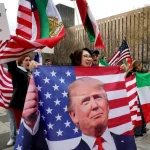If President Donald Trump keeps applying pressure like this, then not even activist judges will stop him.
On Tuesday, Trump signed a crucial executive order called “Preserving and Protecting the Integrity of American Elections.”
Moreover, according to Reuters, states that fail to comply with the president’s order could lose federal money, which state governors, particularly those in Democrat-dominated states with laws hostile to election integrity, will surely want to avoid.
“Federal election-related funds will be conditioned on states complying with the integrity measures set forth by federal law, including the requirement that states use the national mail voter registration form that will now require proof of citizenship,” Reuters noted, quoting a White House fact sheet about the EO.
As for the order itself, Trump began by comparing U.S. elections unfavorably to others around the globe.
“Despite pioneering self-government, the United States now fails to enforce basic and necessary election protections employed by modern, developed nations, as well as those still developing,” the order read.
With that in mind, Trump ordered a crackdown on non-citizens voting in federal elections.
For instance, the national mail voter registration form will now require “documentary proof of United States citizenship.”
Should the next step be requiring voter ID for every single election in the United States?
Yes: 100% (3 Votes)
No: 0% (0 Votes)
Moreover, the president took aim at states’ loose enforcement of laws pertaining to mail-in voting.
“The Attorney General shall take all necessary action to enforce 2 U.S.C. 7 and 3 U.S.C. 1 against States that violate these provisions by including absentee or mail-in ballots received after Election Day in the final tabulation of votes for the appointment of Presidential electors and the election of members of the United States Senate and House of Representatives,” the order read.
Then, the ensuing section tied federal funding to states’ compliance.
All told, it made for an impressive order in pursuit of election integrity.
Of course, one may always count on the establishment media to push its own election-related narratives and to carry water for leftist activists who insist — against all reason — that laws designed to secure elections by restricting participation to actual citizens somehow constitute disenfranchisement.
On the controversial 2020 presidential election, for instance, Reuters made sure to take a swipe at the president.
“Trump has long questioned the U.S. electoral system and continues to falsely claim that his 2020 loss to Democratic President Joe Biden was the result of widespread fraud,” Reuters wrote with predictable dismissiveness.
Like its peers in the establishment media, Reuters hardly qualifies as an unbiased source. In fact, last month Trump and his ally Elon Musk, owner of the social media platform X and head of the president’s Department of Government Efficiency, accused the outlet of receiving payment from the Defense Department for a “large scale social deception” project between 2018 and 2022. Reuters denied the accusations.
On the 2020 election, however, Reuters hardly stands alone in its dismissiveness toward Trump’s claims. The Washington Times, for instance, otherwise generally solid, referred to those claims as “largely without merit.”
Here, of course, we need not reiterate those claims. We all know what we saw on election night 2020, when vote-counting suddenly stopped in all swing states. Then, for the next four years, Trump’s enemies slandered, censored, framed, and imprisoned people who questioned that election’s legitimacy. Readers may draw their own conclusions.
We can say with confidence, however, that most Americans support proof of citizenship as a condition of voting.
For instance, a 2024 study posted to X by the non-partisan Skeptic Research Center Team showed that 90 percent of those who characterized themselves as “very conservative,” as well as 62 percent of those who characterized themselves as “very liberal,” agreed at least slightly that voting should require proof of citizenship.
Likewise, every political orientation in between — liberal, moderate, and conservative — yielded the same result. Conservatives more “strongly” agreed, whereas liberals merely agreed in large numbers. But at least 75 percent agreed “slightly,” at minimum, across the entire political spectrum.
The majority of Americans agree (at least somewhat) that people should have to prove they are American citizens before they are allowed to vote.
See graphs below for more detail across the political spectrum. https://t.co/WLZgw5VhVR pic.twitter.com/mw9xdgxNhj
— Skeptic Research Center Team (@SkepResCenter) March 25, 2025
In short, Trump took his case for election integrity to the electorate in November, and he won.
Thus, activist judges might try to block yet another of the president’s orders. But they will fail — they must fail — if we hope to preserve a republic controlled by U.S. citizens.
Advertise with The Western Journal and reach millions of highly engaged readers, while supporting our work. Advertise Today.






